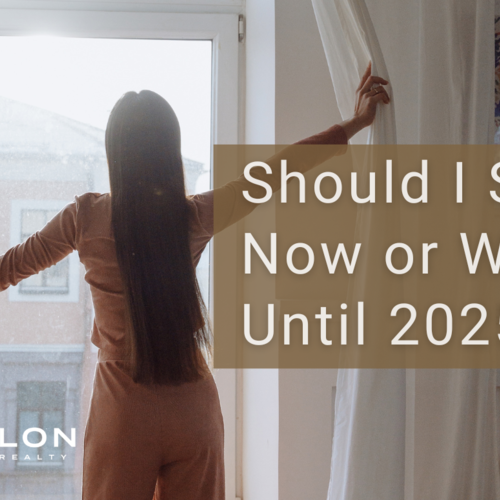What Happens to Your Mortgage When You Sell Your House and Buy Another?
As a realtor with Avalon Group Realty in St. Petersburg, FL, I often get asked about the intricacies of selling a home while still having a mortgage. It’s a common situation, and understanding what happens to your mortgage when you sell your house and buy another is crucial for a smooth transition.
What Happens to Your Mortgage When You Sell Your House and Buy Another? The Mortgage Dilemma
First and foremost, it’s important to recognize that you’re not alone in this situation. According to the Zillow Group Consumer Housing Trends Report 2021, the average homeowner lives in their house for 14 years before selling. However, the most common home financing option is a 30-year mortgage term. This discrepancy leads many homeowners to wonder: what happens to your mortgage when you sell your house and buy another?
Aaron Hunt, Broker of Avalon Group Realty, explains, “Many of our clients are surprised to learn that they don’t need to wait until their mortgage is fully paid off to sell their home. In fact, about 63% of homeowners are still in the process of paying off their mortgages when they decide to sell.”
Understanding Equity
Before diving into the specifics of what happens to your mortgage when you sell your house and buy another, it’s crucial to understand the concept of equity. Equity is essentially your financial stake in the home – the portion of the property that you truly “own.”
There are two types of equity:
- Home investment equity: This includes your original down payment, the principal portion of your monthly mortgage payments, and any investments you’ve made in home improvements.
- Earned equity: This is the additional value your home has gained due to market appreciation.
Pam Amante, another realtor with Avalon Group Realty, adds, “Understanding your equity position is key when considering selling your home. It directly impacts what happens to your mortgage when you sell your house and buy another.”
The Selling Process and Your Mortgage
When you sell your home, the proceeds from the sale first go towards paying off your existing mortgage. Here’s a general breakdown of what happens:
- The buyer’s funds are used to pay off your remaining loan balance.
- Closing costs and real estate commissions are paid.
- Any additional loans (like a HELOC) are settled.
- The remaining profit is transferred to you, the seller.
Josh Zanow, a fellow realtor at Avalon Group Realty, emphasizes, “It’s crucial to get an accurate payoff amount from your lender when preparing to sell. This figure includes the accrued interest as of the closing date, giving you a precise idea of what you owe.”
What Happens to Your Mortgage When You Sell Your House and Buy Another? What If You Don’t Have Enough Equity?
In some cases, homeowners might find themselves in a situation where they owe more on their mortgage than their home is worth. This is known as being “underwater” or having negative equity.
Yvette Kim, another realtor with our team, advises, “If you’re underwater on your mortgage, you have a few options. You can either bring money to the closing table to cover the shortfall or consider a short sale. However, it’s essential to understand that a short sale can impact your credit score and future home-buying prospects.”
Buying and Selling Simultaneously
Now, let’s address the core question: what happens to your mortgage when you sell your house and buy another? The answer largely depends on the timing of your transactions.
If you sell first: This is often the simpler route. When you sell your current home, your mortgage is paid off at closing. You can then use the proceeds from the sale as a down payment on your new home.
If you buy first: This scenario is more complex. You’ll need to find a way to fund the down payment on your new home while your equity is still tied up in your current property. Options include:
- Contingent sale: Making an offer on a new home contingent on selling your current one.
- Bridge loan: A temporary loan to cover the down payment while you wait for your current home to sell.
- HELOC: Using a home equity line of credit on your current home to fund the down payment on the new one.
Aaron Hunt notes, “At Avalon Group Realty, we often help clients navigate the complexities of buying and selling simultaneously. Understanding what happens to your mortgage when you sell your house and buy another is crucial for making informed decisions.”
Special Considerations
- Prepayment Penalties: Some mortgages come with prepayment penalties. Check with your lender to see if this applies to your loan.
- Escrow Accounts: When you sell, any remaining funds in your escrow account will be refunded to you, usually within 20 days of closing.
- HELOCs: If you have a home equity line of credit, it will need to be paid off along with your primary mortgage when you sell.
Pam Amante adds, “Don’t forget about closing costs when calculating your proceeds. These can significantly impact what you walk away with after the sale.”
Strategies to Increase Your Equity
If you’re concerned about having enough equity when you sell, consider these strategies:
- Make extra mortgage payments: Even one extra payment per year can significantly reduce your principal over time.
- Invest in home improvements: Strategic upgrades can increase your home’s value.
- Wait for market appreciation: If possible, holding onto your home in a rising market can boost your equity.
Josh Zanow suggests, “Making bi-weekly mortgage payments instead of monthly ones can help you build equity faster. It results in one extra full payment per year, reducing your principal more quickly.”
What Happens to Your Mortgage When You Sell Your House and Buy Another? Steps to Sell a Home with a Mortgage
- Contact your lender for a payoff statement: This will tell you exactly how much you need to pay to satisfy your mortgage.
- Estimate your home’s value and potential proceeds: This helps you understand if you’ll have enough to pay off your mortgage and cover closing costs.
- Find a reputable real estate agent: They can help you price your home correctly and navigate the selling process.
- List and sell your home: Once you accept an offer, the closing process begins.
- Pay off your mortgage at closing: The proceeds from the sale will first go towards satisfying your mortgage.
Yvette Kim emphasizes, “Working with an experienced real estate agent is crucial when navigating what happens to your mortgage when you sell your house and buy another. We can help you time your transactions to minimize stress and financial strain.”
The Importance of Timing
Timing is everything when it comes to what happens to your mortgage when you sell your house and buy another. Ideally, you want to close on your current home before or simultaneously with closing on your new home. This approach helps avoid carrying two mortgages at once.
However, market conditions don’t always allow for perfect timing. In a seller’s market, you might find your current home sells quickly, but struggle to find a new home to buy. Conversely, in a buyer’s market, you might find your dream home before selling your current one.
Aaron Hunt advises, “Flexibility is key. Be prepared for various scenarios and have contingency plans in place. This might include arranging temporary housing if you sell before buying, or securing a bridge loan if you buy before selling.”
Conclusion
Understanding what happens to your mortgage when you sell your house and buy another is crucial for a smooth transition. While the process can seem daunting, with proper planning and professional guidance, it’s entirely manageable.
Remember, your mortgage doesn’t have to be fully paid off to sell your home. The key is having enough equity to pay off your current mortgage and cover closing costs, while hopefully walking away with some profit to put towards your next home.
As Pam Amante wisely puts it, “Every homeowner’s situation is unique. What happens to your mortgage when you sell your house and buy another can vary based on your specific circumstances. That’s why it’s crucial to work with experienced professionals who can guide you through the process.”
At Avalon Group Realty, we’re here to help you navigate these complex transactions. Whether you’re just starting to consider selling or ready to make a move, we can provide the expertise and support you need to make informed decisions about your mortgage and your move.
If you are looking for a St Petersburg Realtor visit https://avalongrouptampabay.com/




